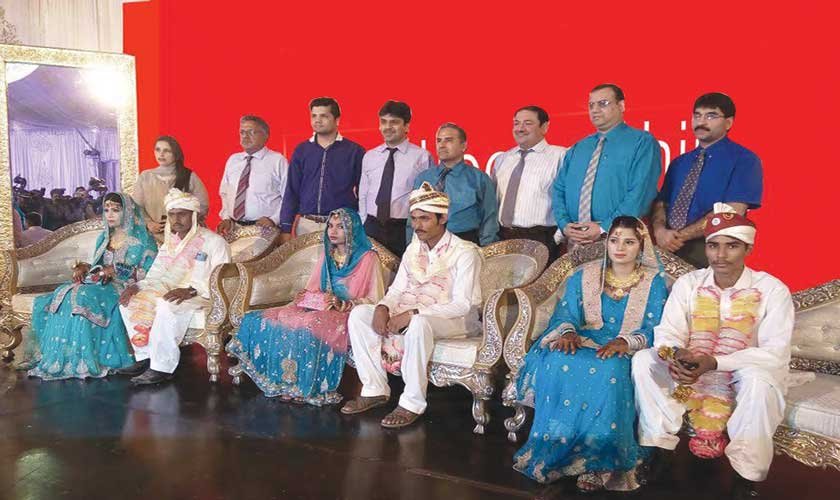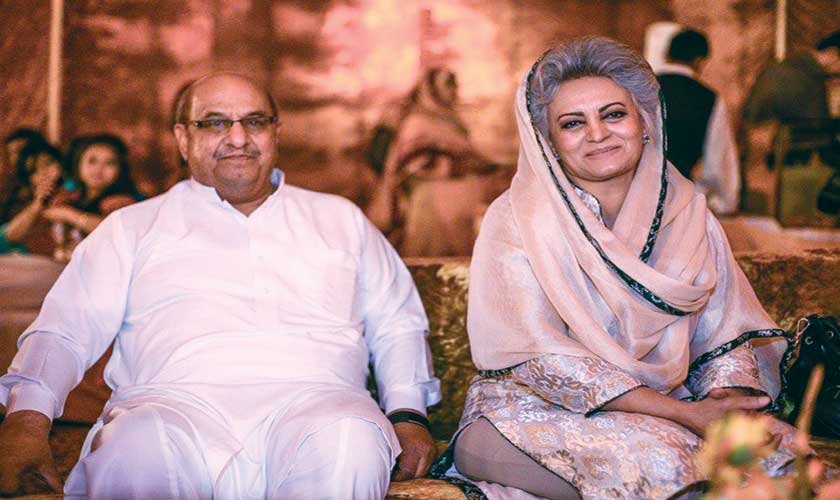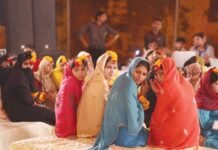In our part of the world, marriage is an occasion where families spend outrageously on the wedding ceremonies, dowry, give-aways and what not. And the most appalling fact is that all classes of the society are guilty of this madness. The elite class shows how wealthy they are by lavishly spending on such occasions. And people from middle and lower class either go bankrupt or plunge into financial debts.

The traditions of dowry and spending hefty amounts on the wedding ceremony have created a standard where each family tries to excel more than it actually can. The girl’s side always has the fear of being mocked by the society which leads them to spend more than they can actually afford. These societal tribulations burden families of all strata, however, one cannot ignore that they mostly affect the lower income groups.
Various organizations and the media is spreading awareness and trying to get rid of this social ill, but the fact is that it might take years for us to abolish this system. So what do families who can’t provide their daughters with dowry do? Should their daughters remain single for the rest of their lives just because they are unable to give dowry?

Luckily, there are some organizations and multinational companies who are trying to make a difference in people’s lives by helping them out with the dowry issue. And one such company is Master Moltyfoam (MMF) who has recently launched their monthly initiative called ‘Beti Bojh Nahin’ in Lahore, owing to their devotion for Corporate Social Responsibility (CSR). Through this campaign the company recently married off 100 women belonging to the lower strata of our society by taking care of all the expenses of the wedding functions along with a wedding gift to each and every one of them. Not only this, the initiative works towards empowering women by giving free vocational training after they get married to help them earn a better living for their families.
The company is a major investor in numerous philanthropic activities and contributes a percentage of annual income on social issues and remains committed to charitable initiatives that each year it provides. Determined to give it back to society; it has started these projects with renewed vigour and enthusiasm. It is inspirational to see them making full use of its existence by becoming a major player in contributing to the working for the uplift of the underprivileged. To help the families through financial and emotional hardship, teaching, sewing or working in fields, to pledge to help them get married with dignity is the ultimate vision and to enable women to not just start their own future but do so with pride and independence.

‘Mishall e Hira’ is a nonprofit organization which is run by Hira who has collaborated with the company for this particular initiative. “My NGO had already managed to organise 350 weddings in the past few years, so when Shahzad Malik from Moltyfoam came up to me with the concept, I knew exactly how to go about it,” says Hira.
The company not only realizes how difficult it is to meet the expenditures and hence decided that they will be bearing all the expenses of mass marriage ceremonies of over 100 couples. “This was our second CSR initiative where we married off these women with dignity enabling them to start their future with a sense of pride and independence. We also celebrated the strength of these 100 girls along with other women of strength, by lighting 100 ‘diyas’ of hope. Each diya lit was a tribute to the spirit of each girl and was a pledge to keep this hope alight,” shares Shahzad.

“The aim was to make this event a memorable one so that all the girls could enjoy the festivities just like any other girl would on her big day. This campaign supports women to become better mothers and wives. In December 2015, the pilot phase was initiated where seven girls had been married off. Mishall e Hira has thus been instrumental in selecting and collecting data of hundred girls before the final list had been finalized,” adds Shahzad.
According to Hira, it’s the norm in the society to give jahez. The practice is more common among people from lower strata of the society. “When I got the first girl married it was her second marriage. She was mercilessly beaten up by her first husband on the grounds of not brining ‘Jahez’ so the second time around the mother insisted that her daughter should be given dowry. So, we devised a list consisting of basic items – gas stove, mattresses, few kitchen utensils and bridal dress. The jahez package under the beti bojh nahi campaign also started off from the same concept,” she explains.
The dowry items provided under the package, which comes to around 7-8 lakh rupees per girl, includes a bridal dress, bridegroom’s shalwar kameez, gold earrings, double mattress, plastic dinner sets and cooking utensils.
According to Massarat Misbah, the best thing about this initiative is that it is about girls. “Unfortunately, society takes them as a lesser being which they are certainly not. Being a part of their lives on their most important occasion is the best contribution. I consider myself lucky to be to take part in the wedding festivities of these girls. I think that all big companies should stress on rebuilding and evaluation their CSR’s to up lift the downtrodden.”

“Our goal is to give each girl vocational training and/or a tool of empowerment (sewing machines) so that they continue on their journey. We are proud to have formed a partnership with ‘Bunyad’, an inspirational entity in its own right, to help make our dream become a reality. 100 weddings 100 smiles is a celebration of empowering 100 daughters to start their own futures with a smile. It is a celebration of their strength and willpower without which their family would have had no hope, without which Pakistan would have no hope,” concludes Shahzad Malik.





































